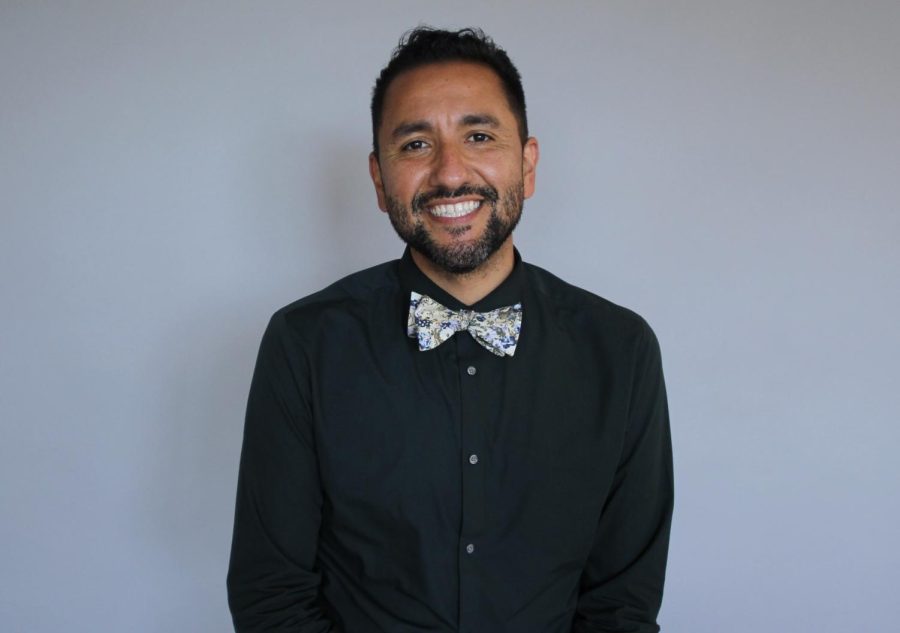Let down by the district: An interview with our outgoing principal
Heavy is the head that wears the crown, as the saying goes. Yet, when I spoke with Principal Joe Dominguez about him leaving Lowell High his demeanor seemed lighter than it was during previous interviews with him. He welcomed me into his office, relaxed and eager to talk, despite having announced his plans to leave Lowell only a few days prior. We sat down and I spent the first few minutes surprised, expecting short replies and a rushed interview. Instead, I received a principal who was watching the sun set on his era at Lowell and wishing he could have stayed longer. He seemed relieved, happy to be leaving a school district that had, from his perspective, fallen on its face. In a way, he seemed like a man forced out by circumstance, like he had spent the last few months fighting an uphill battle and had finally laid down his sword. As we spoke he reflected on why he became a principal, the San Francisco Unified School District issues which pushed him to leave, and an enduring hope he had for the Lowell community.
Q: So you’re leaving. I wanted to go back a little bit and really start with why you decided to come to Lowell. You’ve been here for a few years.
A: This is my third year. I wanted to come to Lowell because I’ve always been a huge proponent and advocate for public high schools, public schools in general. My entire passion is around teaching and learning, around finding the best ways to drive high instructional expectations, but also helping students find out who they are as individuals before they leave us. From my youth, I always loved a large campus because it provides opportunities for students to do a little bit of everything, explore who they are, and where they want to expand their leadership. In large comprehensive high schools that offer a large variety of programs you get to see teenagers grow from 14 to 18 years old and in such amazing ways through not just the academics but through clubs and athletics and just everything they have to offer. I was a math teacher before this, a student council advisor, too, then I became an assistant principal. Then, I had an opportunity to move to San Francisco, a major city that I have always admired and thought was beautiful, and apply my passion for public education here. That’s why I wanted to come. It just worked out that Lowell had a position that was available. It was the size of a campus that I was used to and it had all of the things I just talked about, that’s why.
Q: Is Lowell similar to schools that you had attended personally or ones that you had taught at?
A:Yes to all of that. I’ve only ever worked at large comprehensive high schools.
Q: So, Why are you leaving Lowell?
A: It has nothing to do with Lowell’s community. I think in these three years I’ve had a wonderful time getting to know all of you. These students have been wonderful, the faculty have been wonderful and so has the families and the external communities like the Alumni Association and the PSTA. Everyone has been super supportive, even through a pandemic they’ve been great. However, I believe the only reason I left the classroom to be an administrator —because I love teaching — is because administrators have a responsibility being instructional leaders and really driving the focus of curriculum changes and forward thinking. That really should be handled at the admin level. Not all districts support that in the way that they implement their expectations for their site leadership, their principals and assistant principals. In order for that to be true, for your administrators to be instructional leaders, you have to have really solid systems in place from the central office that runs all of the schools. It should be clear what their expectations and their policies are regarding faculty and student behavioral expectations and accountability. Those things should already be in place. I think you’ve seen over the years that that’s not always the case. Your leadership should be supported with very clear and concise policies that allow them to get rid of the managerial stuff every single day so they can focus on being in the classrooms. I’ve rarely been in classrooms this year, just to sit and observe and see what’s happening, what learning is taking place. That’s because most of our day has been monopolized by either district meetings or managing processes that aren’t fully fleshed out. I was surprised that in a large comprehensive district that they were so disorganized.
Q: When you’re talking about the administrative processes and you said that there’s a failure of systems, what systems are you talking about? What are we talking about exactly, could you give a few examples of where exactly you felt the system fell short of what your expectations were?
A: Let me figure out where to begin…I’m familiar with districts that have very clear teaching and learning models, their expectations for what high levels of excellence in the classroom looks like. We are a beacon here. Lowell has high levels of learning that happens in the classroom so I think that that’s fantastic. But what I’m also noticing across other schools is that we’re all operating on our own, so it’s like every high school is operating on its own little island to try to figure it out on its own. We’re doing great as an island, this campus, in terms of what’s happening, but there isn’t a district-wide expectation for a culturally relevant curriculum, for making sure that we’re staying focused on equity in the classroom. In our meetings, for example, at the district office we have a lot of talk about wanting to be equity-focused and student-centered, but they never translate that to what that means in our classrooms. And so while we have good pockets here at Lowell that are looking at equity — like I know our U.S. History and our World History classes are really trying to shift their focus towards that — they’re doing that because it’s pockets of talent that are doing it, not an expectation district wide.
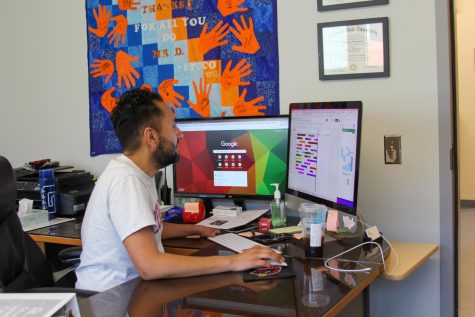
Q: Was there any pressure placed on you to leave or was this a decision made on your own?
A: It’s a decision I made on my own. There was absolutely no pressure placed on me. When there is no real support for your site leadership it almost makes the decision inevitable.
Q: . When did you first start thinking about it and what really led you to leave? What was the final kicker?
A: I know I’d like to lead with communication and transparency, especially the way that I handled this budget shortfall. I have the same expectations for the people I work for. I would expect that my supervisors, my central office, would have given me more opportunity and time to give input about why this budget impact was disproportionately unfair for our campus. I understand the need to cut back on our expenditures, but these are decisions that could have and should have been made incrementally over years versus just one major disruption to a large campus like our own. And I felt like they were in an unfair situation without much support.
Q: So the way the District handled budget cuts pushed you over the edge?
A: Yeah, because it really highlighted for me the severe lack of backwards planning and well just planning in general from the central office. They’re too reactive for my taste versus having a vision for five or 10 years or having systems in a palace where they don’t have to make such drastic decisions last minute because they’re forced to. That plus districtwide teachers not being paid and staff not being paid for all of the hard work that they’re doing through a fumbled payroll transition. That’s unheard of to me.
Q: We both know that the budget crisis is going to be around for the next few years. Did you decide to leave now rather than waiting to see how all this washes out?
A: Good question. I had to weigh a lot of factors so there is an element of personal factors: can I see myself navigating a school district that really seems to make everything difficult for no particular reason? And then I looked at the way the community stepped up and responded to my transparency and the way I outlined the budget this year and what I saw is that Lowell’s going to be fine. Lowell is going to be fantastic because their community has always allowed it to thrive no matter what the circumstances are. When I see the way students and families and PTSA and the Alumni Association and the faculty all rally together any time there’s any sort of turbulence that’s not reliant on any one particular leader. It’s just the resilience of you all so the way PSTA and Alumni Association were able to step up and support the programs we thought we were going to lose. I thought that was amazing. The way I saw faculty here really step up and advocate for themselves when they were losing the AP prep I thought that was powerful as well. Just the way that everyone supported each other just over these three years I know that even if I left now Lowell is going to be alright so I had to make a personal decision.
Q: Would stable leadership at Lowell help pass this community through this crisis?.
A: No. I think that the school district has to make some serious decisions about how they support the schools and that wouldn’t necessarily rely on anyone.
Q: What has the response been from community members to the announcement that you were leaving?
A: By and large, I’ve received nothing but positive support. People understand my position. Again, I don’t want to make this about me. The reason I shared my letter to you all is because I felt like in full transparency y’all needed to know that I wasn’t going to be here next year. We are going to do everything we can to hire a new principal soon and I knew that once I had made that announcement people were going to want to know why. So I addressed why but besides that I’m ready to focus on the kids.
Q: Kind of a transition, but what are you going to miss from Lowell?
A: The community. I mean it. When you all rally together when there is any turbulence you show the power of what a school can be based on the way you guys come together and I think that’s pretty cool.
Q: On a similar note, do you have any regrets from the past three years? Anything you wish you had done differently or anything you wish you had been able to do?
A: I regret that I never truly got to live on Lowell’s campus as much as I would have liked to because of the pandemic, that was a majority of my time here. I regret that many of the systems that I believe we should have in place weren’t already there but we’re laying the foundation so I wanted a student-family handbook so that everyone knows what the expectations are. That’s in the works. Ms. Liverpool is working on that and she’s going to stay and she’ll be able to continue that even without me. I regret that I couldn’t stay longer because I’m going to miss Lowell quite a bit.
Q: Lowell has had three different principals in the past four years. That’s a lot of change in a short amount of time. Do you think this is a pattern that will continue?
A: It is hard to find long-lasting principals anymore. If you’ve noticed there are several schools in the district that are losing principals. If the school district does not change the way that they are structured to support their schools better and to really focus on meaningful support for their school leadership who then can support their teachers who then can support their students, it will continue. They really need to do some soul searching.
Q: Do you have any advice for the next principal?
A: Listen to the people that have been here and that know the strengths of Lowell and know the areas that they want to grow. I would recommend to the new leadership that being communicative and transparent is key and you start that by listening to the people that remain, the people that make this place strong.
Q: Any final words on your leaving and this decision?
A: A principal is a shepherd for its community and so the school doesn’t live or stop by one singular person, nor should it, so let’s just focus on finishing out this year strong. The seniors deserve the best send of that they have been working towards. Our teachers retiring and leaving us this year deserve a fantastic send off as well. Let’s focus on why we’re here. We’re here for you guys, not for me.
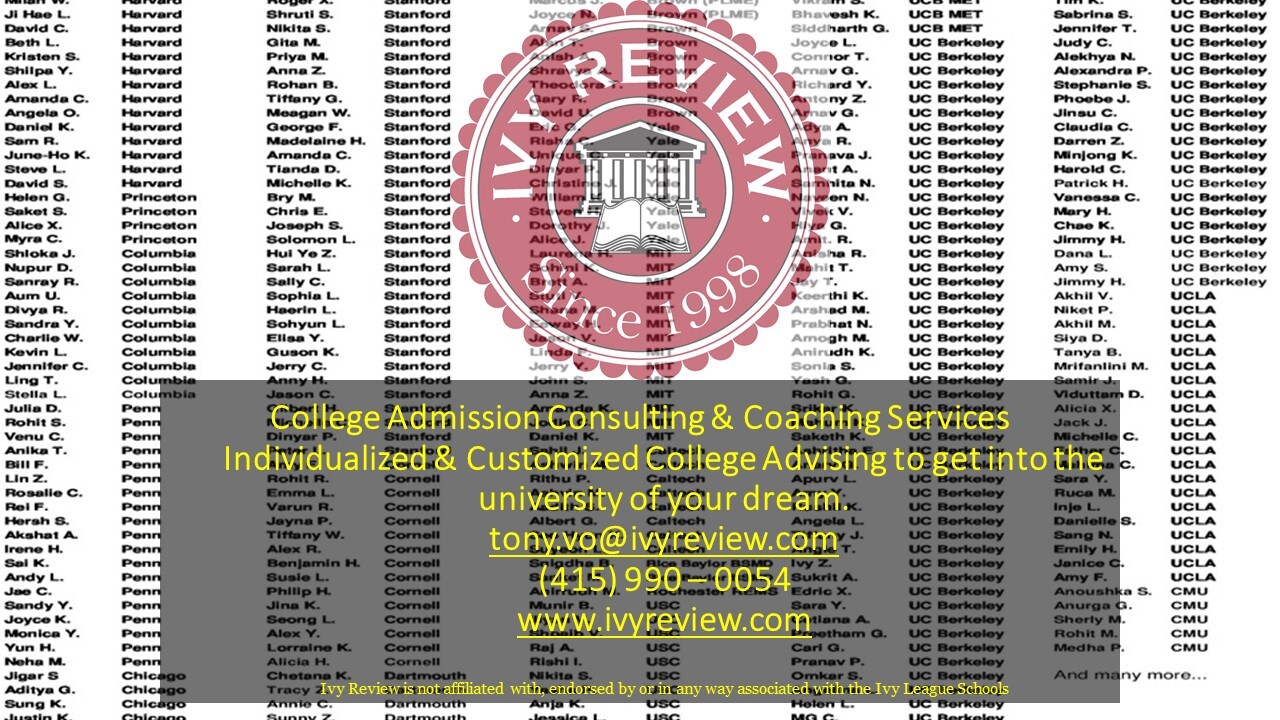

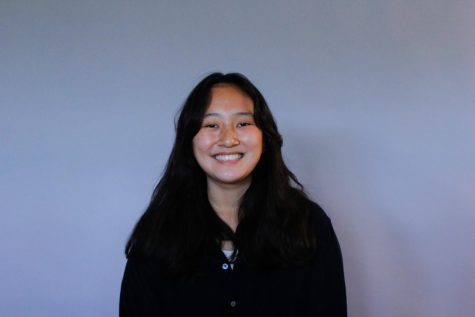
Yeshi (yEEshi) is a senior at Lowell that loves the school breakfast bagels a little too much. After school hours, you can find her at the beach or in the park daydreaming about almost anything and everything.
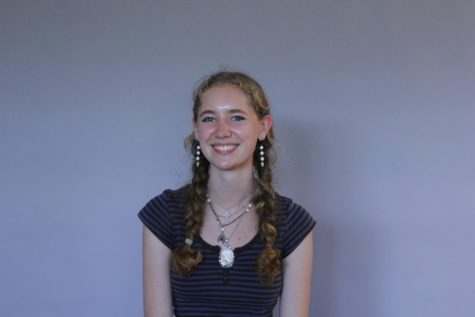
Marlena is a senior at Lowell. When she isn't at school she's probably at the lab, watching a movie, or sitting on the sidewalk listening to music (usually Björk).


